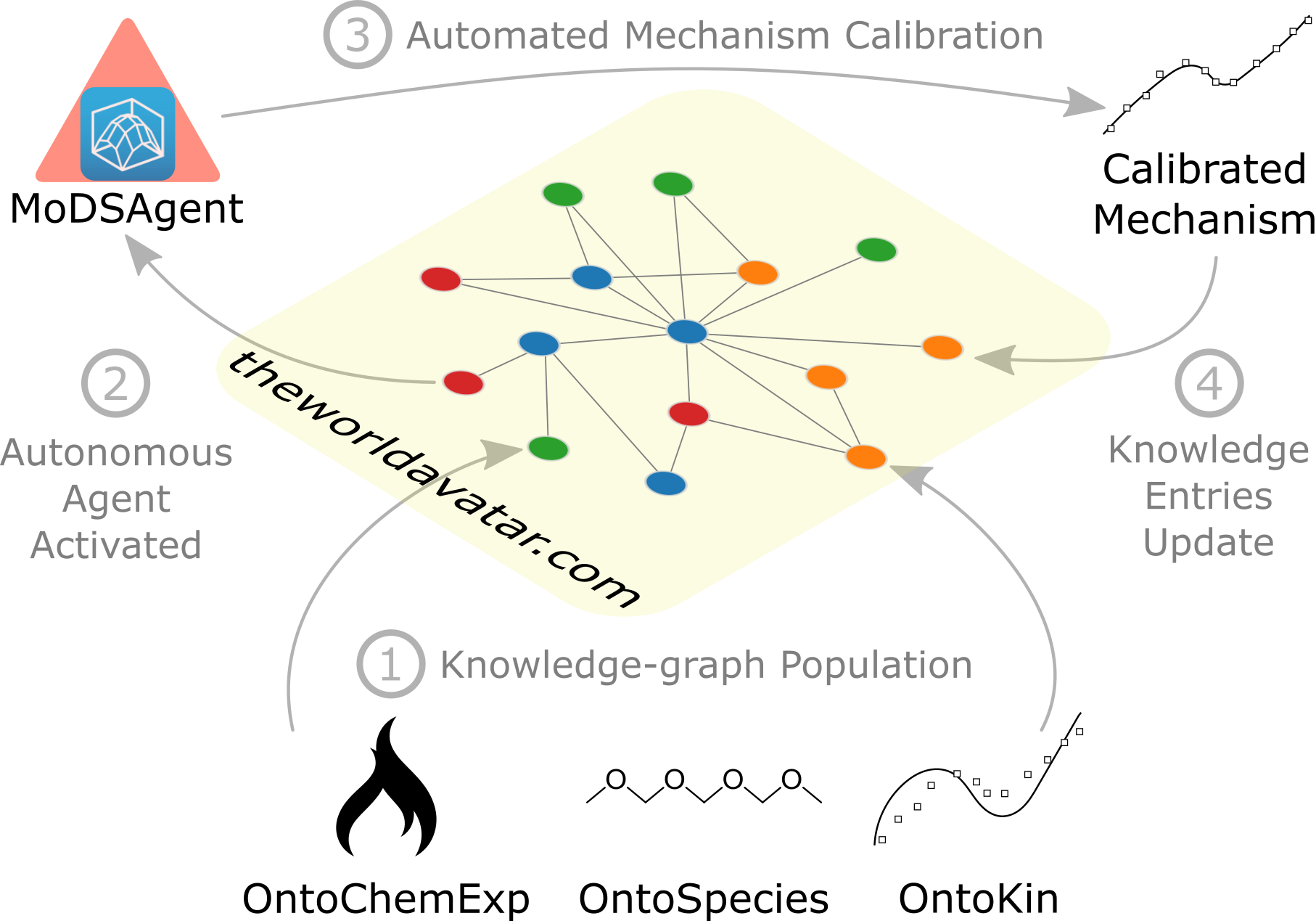Technical Report 262, c4e-Preprint Series, Cambridge
Automated calibration of a poly(oxymethylene) dimethyl ether oxidation mechanism using knowledge-graph technology
Reference: Technical Report 262, c4e-Preprint Series, Cambridge, 2020
- An ontology for representing certain types of combustion experiments is created.
- Autonomous agents for sensitivity analysis and mechanism calibration are developed.
- Interactions between the agents and the knowledge-graph are managed by a coordination agent.
- A PODE3 mechanism is calibrated against ignition delay time and laminar flame speed.
- The proposed knowledge-graph approach outperforms manual calibration substantially.
 In this paper, we develop a knowledge-graph based framework for the automated calibration of combustion reaction mechanisms and demonstrate its effectiveness on a case study of poly(oxymethylene) dimethyl ether (PODEn, where n=3) oxidation. We develop an ontological representation for combustion experiments, OntoChemExp, that allows for the semantic enrichment of experiments within the J-Park Simulator (JPS, theworldavatar.com), an existing cross-domain knowledge-graph. OntoChemExp is fully capable of supporting experimental results in the Process Informatics Model (PrIMe) database. Following this, a set of software agents are developed to perform experimental results retrieval, sensitivity analysis, and calibration tasks. The sensitivity analysis agent is used for both generic sensitivity analyses and reaction selection for subsequent calibration. The calibration process is performed as a sampling task followed by an optimisation task. The agents are designed for use with generic models but are demonstrated with ignition delay time and laminar flame speed simulations. We find that calibration times are reduced while accuracy is increased compared to manual calibration, achieving fittings 92% more accurate. Further, we demonstrate how this workflow is implemented as an extension of the JPS.
In this paper, we develop a knowledge-graph based framework for the automated calibration of combustion reaction mechanisms and demonstrate its effectiveness on a case study of poly(oxymethylene) dimethyl ether (PODEn, where n=3) oxidation. We develop an ontological representation for combustion experiments, OntoChemExp, that allows for the semantic enrichment of experiments within the J-Park Simulator (JPS, theworldavatar.com), an existing cross-domain knowledge-graph. OntoChemExp is fully capable of supporting experimental results in the Process Informatics Model (PrIMe) database. Following this, a set of software agents are developed to perform experimental results retrieval, sensitivity analysis, and calibration tasks. The sensitivity analysis agent is used for both generic sensitivity analyses and reaction selection for subsequent calibration. The calibration process is performed as a sampling task followed by an optimisation task. The agents are designed for use with generic models but are demonstrated with ignition delay time and laminar flame speed simulations. We find that calibration times are reduced while accuracy is increased compared to manual calibration, achieving fittings 92% more accurate. Further, we demonstrate how this workflow is implemented as an extension of the JPS.
Material from this preprint has been published in Journal of Chemical Information and Modeling.
PDF (789.1 KB)



